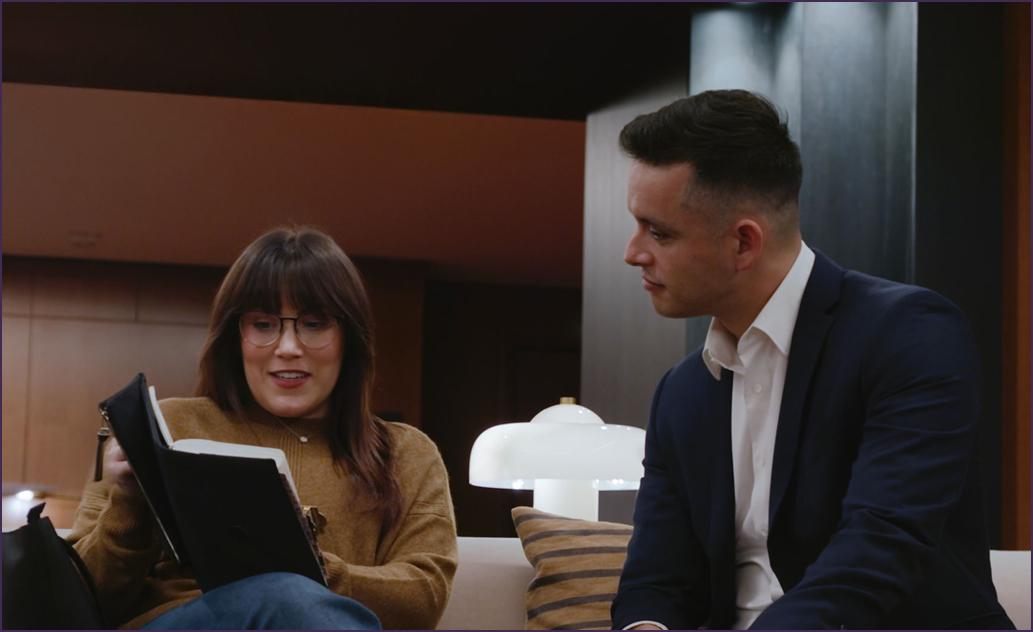A Career Path Inspired by Curiosity
I didn’t set out to become a psychiatric nurse practitioner. In fact, for a long time, I didn’t even know the role existed. My first experience with a nurse practitioner was in dermatology—I saw him for years and just assumed he was a physician. I remember being surprised (and impressed) to learn I had been seeing an NP all along. Even then, I had no idea NPs could specialize in psychiatry.
It wasn’t until I was deep in my Marriage and Family Therapy program that a quiet curiosity started to grow. I remember sitting in my clinical diagnosis class—memorizing the DSM, learning clinical assessment, and generating differential diagnoses—and wondering if there was another path that blended the medical and psychological aspects of care. I had a quick “should I have gone to med school?” moment, but I stuck with the three-year program I was already in. I went on to complete the 3,000 clinical hours required for licensure, working in both community mental health and private practice.
The Moment That Changed Everything
Something shifted during those 3,000 clinical hours, when one of my long-term therapy clients—after months of feeling stuck—agreed to try Zoloft following several conversations about a psychiatry referral. Six weeks later, she came in and said, “I can actually use the tools we talk about now.” It was a pivotal moment. I started to realize that insight and change often require more than one modality—and that understanding neurobiology, pharmacology, and brain-based treatment approaches could amplify therapeutic outcomes in a powerful way.
Discovering the Psychiatric Nurse Practitioner Role
At the same time, my husband, who was working as a medical assistant, mentioned a provider in his community clinic who wasn’t doing typical primary care—instead, she focused on motivational interviewing and behavioral health. I looked her up—she was a psychiatric nurse practitioner—and I was immediately intrigued. Still, it wasn’t until later, when my husband started nursing school, that something really clicked. I became obsessed with his coursework. I couldn’t stop asking questions, diving into what he was learning, and the thought came rushing back: What about that psych NP?
He encouraged me to go back to school, and once the idea took hold, there was no letting it go. One thing about me — when I feel deeply inspired and a path truly aligns, I move. Fast. Within days, I had signed up to retake all of the prerequisite science classes I had completed in undergrad but had since expired. I gathered all my application materials for Case Western’s MN to MSN Psychiatry program, knowing my husband planned to stay in Ohio and work in the Cleveland Clinic CVICU. It all made sense. It all lined up. And there was no question in my mind about wanting to be a Psych NP.
Training and Professional Growth
I completed my training at Case Western Reserve University’s MN to MSN Psychiatric NP program. It was an intense 3.5 years, but it gave me the clinical depth I had been craving—the ability to approach psychiatry not only through the lens of neurobiology and pharmacology, but with the nuance of someone trained to understand human behavior, relational dynamics, and the unconscious. My background as a licensed therapist had taught me how to attune, how to sit with complexity, and how to understand the deeper roots of distress. But stepping into the psych NP role allowed me to integrate that insight with the medical knowledge needed to diagnose, prescribe, and treat from the whole picture—mind, brain, and body.
Bridging the Art and Science of Mental Health Care
For me, becoming a psychiatric nurse practitioner wasn’t just about expanding my scope; it was about bridging the art of psychotherapy with the science of psychiatry. It gave me the missing link I needed to offer care that’s deeply relational, evidence-informed, and grounded in both clinical precision and human connection.
Scholarship as a Form of Care
Scholarship isn’t something I do on the side—it’s core to how I care for my patients. I’m constantly reading, studying, and translating complex research into tools that people can actually use in real life. Whether it’s understanding the latest findings on ADHD, reviewing neuroimaging research on trauma, or debunking myths around psychiatric medication, I believe that staying curious and informed is a way to show up more fully for the people I serve.
The Praxis Approach: Knowledge Put Into Action
In my practice, I don’t just prescribe—I collaborate, educate, and adapt care based on what the research says and what each patient uniquely needs. Because at the end of the day, scholarship isn’t about collecting knowledge. It’s about making that knowledge meaningful.



